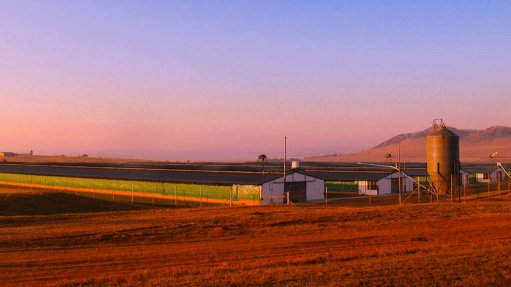Policy changes attract investment



STRIKING GOLD Malawian mining policy reforms aim to facilitate sustainable development and increase benefits
GROWING PAINS While significant progress has been made in improving the investment climate, various challenges still remain
Recent mining policy reforms in Malawi aim to facilitate the sustainable development of the country’s mining industry and mining practices as well as reap the “full benefits” of the country’s vast mineral wealth, reports law firm Sitef and Co director Mihlali Sitefane.
Malawi's mining opportunities are characterised by three major pillars, namely the country's mineral wealth, the exploration potential and recent policy reforms, she says.
Sitefane points out that Malawi boasts rich mineral wealth, including possessing reserves of uranium, coal, limestone and rare earth elements.
The geological landscape also offers unexplored potential for valuable minerals, particularly in the northern and southern regions of Malawi, providing a “golden opportunity” for investors, she explains.
Therefore, to support and develop the Malawian mining industry, the government has undertaken mining policy reforms, including simplifying the licensing process and streamlining regulations, to create what Sitefane says is a more favourable investment climate for the sector.
The most significant regulatory reform implemented is the introduction of the 2018 Mines and Minerals Act, which is formulated to regulate development of mineral resources in the country, while adhering to sustainable development principles, she points out.
The sustainable development principles aim to promote economic growth, protect citizen welfare, and make the mining sector attractive for investment while slowing economic decline owing to fewer mining activities.
The Act also mandates that the relevant government authority consider sustainable development principles, including environmental sustainability, when deciding to grant a mineral tenement under the Act.
Further, Sitef and Co lawyer Njabulo Mchunu says the Act shows a clear, concerted effort by the Malawian government to ensure environmental sustainability, the implementation of sustainable mining practices and the participation of ordinary Malawians in the exploitation of their country’s natural resources.
New Mandates
Under the 2018 Act, ownership of all Malawi’s minerals vests in the State, rather than the President.
The Act also introduces a hybrid mining title system, which aims to promote transparency, regulatory certainty and consistency in the application process, as well as serves to limit the discretion of the government, which curtails corrupt practices, Mchunu explains.
The Act mandates applicants to apply to the State for a “mineral tenement”, which includes a prospecting licence, a reconnaissance licence and an exploration licence, among other licences.
While concession agreements with the State are no longer a strict necessity to conduct mining in Malawi, Mchunu says the State can enter into concession agreements with operators obtaining medium or large-scale mining licences.
Along with mining licences being separated under the 2018 Act into small-scale, medium-scale and large-scale mining licences – each with varying rights, durations and requirements for granting and renewal – the Act also introduces small-scale mining licences and artisanal mining permits, Mchunu points out.
Moreover, the Act ensures job creation and increased tax revenue from small-scale operations and requires holders of medium- and large-scale mining licences to provide an employment training plan, goods and services procurement plan, and a business development assistance plan.
These plans aim to assist Malawian citizens in improving their skills base and participation in the mining value chain, as well as in developing sustainable business models.
In addition, Mchunu says that a mineral tenement holder is statutorily required to give preference to Malawian citizens and Malawian-owned businesses on a case-by-case basis, and to the extent possible for such plans.
Further, large-scale mining licence holders are also mandated under the Act to enter into community development agreements that uplift and improve the communities in which such an operation conducts business.
With enforcement of these factors of the Act, Mchunu highlights that ordinary Malawian citizens are able to participate in the benefits from the exploitation of their national mineral resources.
Challenges
Despite “significant strides” made in improving the investment climate, Sitefane points out that regulatory challenges remain; in particular, the implementation of policies and regulatory instruments still require more resources and capacity-building to ensure the uniform application of policies and laws as well as reduced corruption.
Sitefane explains that the Malawian government needs to invest in capacity-building for the administration, legal application and enforcement of the provisions of the 2018 Act.
Further, owing to the more robust environmental provisions in the Act, Sitefane says the government must prioritise providing additional resource capacity to Malawi’s Environmental Protection Authority (MEPA) to enable for the effective enforcement and continuous monitoring of the more comprehensive environmental obligations placed on mineral tenement holders and to continuously monitor compliance therewith.
Meanwhile, Sitefane notes that the Malawian mining industry is also impacted by the country's infrastructure limitations, particularly related to transportation, energy and telecommunications, which “pose significant hurdles”.
Comments
Press Office
Announcements
What's On
Subscribe to improve your user experience...
Option 1 (equivalent of R125 a month):
Receive a weekly copy of Creamer Media's Engineering News & Mining Weekly magazine
(print copy for those in South Africa and e-magazine for those outside of South Africa)
Receive daily email newsletters
Access to full search results
Access archive of magazine back copies
Access to Projects in Progress
Access to ONE Research Report of your choice in PDF format
Option 2 (equivalent of R375 a month):
All benefits from Option 1
PLUS
Access to Creamer Media's Research Channel Africa for ALL Research Reports, in PDF format, on various industrial and mining sectors
including Electricity; Water; Energy Transition; Hydrogen; Roads, Rail and Ports; Coal; Gold; Platinum; Battery Metals; etc.
Already a subscriber?
Forgotten your password?
Receive weekly copy of Creamer Media's Engineering News & Mining Weekly magazine (print copy for those in South Africa and e-magazine for those outside of South Africa)
➕
Recieve daily email newsletters
➕
Access to full search results
➕
Access archive of magazine back copies
➕
Access to Projects in Progress
➕
Access to ONE Research Report of your choice in PDF format
RESEARCH CHANNEL AFRICA
R4500 (equivalent of R375 a month)
SUBSCRIBEAll benefits from Option 1
➕
Access to Creamer Media's Research Channel Africa for ALL Research Reports on various industrial and mining sectors, in PDF format, including on:
Electricity
➕
Water
➕
Energy Transition
➕
Hydrogen
➕
Roads, Rail and Ports
➕
Coal
➕
Gold
➕
Platinum
➕
Battery Metals
➕
etc.
Receive all benefits from Option 1 or Option 2 delivered to numerous people at your company
➕
Multiple User names and Passwords for simultaneous log-ins
➕
Intranet integration access to all in your organisation




















